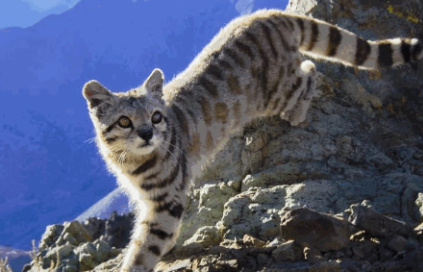Mountain cats, also known as wildcats, have long captured human imagination with their grace, strength, and enigmatic presence. These majestic creatures, found in various mountain ranges around the world, embody the spirit of the wilderness. Naming a mountain cat, whether as a pet or in literary or educational contexts, carries a unique charm and significance. This guide delves into the fascinating world of mountain cat names, offering insights into their origins, meanings, and the cultural contexts from which they arise.

Understanding Mountain Cats
Before diving into the naming conventions, it’s essential to understand the diverse species that fall under the category of mountain cats. This includes the snow leopard, mountain lion (also known as the cougar or puma), Eurasian lynx, and the Andean mountain cat, among others. Each of these species has unique characteristics, habitats, and cultural significances that can influence naming practices.
Historical and Cultural Influences on Mountain Cat Names
Indigenous Cultures
Many mountain cat names are derived from indigenous languages and cultures. For instance, the name “Puma” comes from the Quechua language spoken by indigenous people in the Andes. Understanding these cultural roots can add depth and respect to the naming process.
Mythology and Folklore
Mountain cats feature prominently in various mythologies and folklore. The Norse mythology’s Lynx is believed to possess the ability to see through solid objects, making names like “Sleipnir” or “Freya” evocative of these mystical attributes.
Modern Popular Culture
From animated films to novels, mountain cats have been immortalized in modern popular culture. Names like “Simba” from “The Lion King” or “Aslan” from “The Chronicles of Narnia” resonate with a broad audience due to their cultural significance.
Naming Conventions and Categories
Nature-Inspired Names
Nature offers a plethora of naming inspirations. Names like “Blizzard,” “Avalanche,” and “Summit” reflect the rugged and majestic environments these cats inhabit.
Descriptive Names
These names are based on the physical attributes or behaviors of the cats. “Shadow” for their elusive nature or “Frost” for those with a lighter fur coat are examples of descriptive names.
Geographical Names
Naming mountain cats after their native regions or specific mountains can be meaningful. “Himalaya” for a snow leopard or “Andes” for an Andean mountain cat highlights their geographical heritage.
Popular Mountain Cat Names and Their Meanings
| Name | Meaning | Origin |
|---|---|---|
| Puma | Powerful and agile predator | Quechua |
| Lynx | From Greek, meaning ‘light’ (referring to their reflective eyes) | Greek |
| Snow | Represents the snowy habitats of snow leopards | Descriptive |
| Everest | Named after the highest mountain peak, symbolizing strength | Geographical |
| Shadow | Reflects the elusive and stealthy nature of mountain cats | Descriptive |
| Freya | Norse goddess associated with love, beauty, and fertility | Mythological |
| Simba | Lion in Swahili, popularized by “The Lion King” | Popular Culture |
| Aslan | Turkish for lion, from “The Chronicles of Narnia” | Popular Culture |
| Shasta | A prominent mountain in California | Geographical |
| Frost | Reflecting the cold, frosty habitats of certain mountain cats | Descriptive |
Crafting a Unique Name
When creating a unique name for a mountain cat, consider blending different elements. A name like “Thundersnow” combines weather phenomena, while “Frostfire” juxtaposes contrasting elements to create a memorable and distinctive name.
Best Practices for Naming Mountain Cats
Respect Cultural Significance
Ensure that names borrowed from indigenous cultures or mythology are used respectfully and appropriately.
Consider Pronunciation and Ease
Choose names that are easy to pronounce and remember. This is especially important if the name will be used in educational or public contexts.
Reflect the Cat’s Characteristics
Names should ideally reflect the cat’s physical attributes, behavior, or habitat. This adds a layer of authenticity and relevance.
Conclusion
Naming a mountain cat is a task that blends creativity, cultural awareness, and a deep appreciation for these magnificent creatures. Whether you are naming a pet, a character in a story, or an animal in a conservation project, this guide provides a comprehensive framework to make informed and meaningful choices.
FAQs
Q: What are some unique names for a snow leopard? A: Unique names for a snow leopard include “Glacier,” “Frostbite,” and “Blizzard.”
Q: Can I name my pet cat after a mountain cat? A: Yes, many people choose to name their pets after mountain cats. Names like “Lynx,” “Puma,” or “Leopard” are popular choices.
Q: What should I consider when naming a mountain cat? A: Consider the cat’s physical attributes, behavior, habitat, cultural significance, and ease of pronunciation.
Additional Resources
Review the content carefully to ensure clarity and coherence, and to fix any potential spelling or grammatical errors before finalizing the article.






